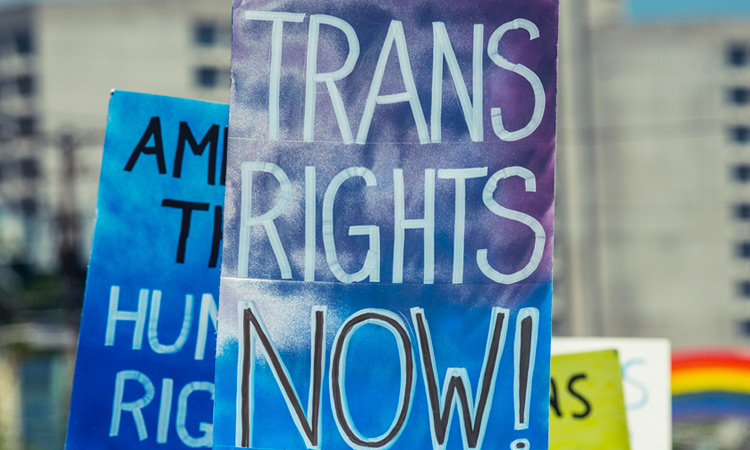 Being true to yourself. What does that mean? Standing up for your family, your country, your beliefs, and even for your own sense of self?
Being true to yourself. What does that mean? Standing up for your family, your country, your beliefs, and even for your own sense of self?
Something is happening and we’re all watching it. There’s a growing understanding of one important way people are being true to themselves – and it’s such a basic thing that it’s hard to ignore. People are claiming the gender that matches who they are on the inside.
Whatever your beliefs might be on the subject, we can all agree about how elemental gender is. Official documents generally require the Female/Male box to be checked. Couples excitedly consider whether their baby will be a boy or a girl.
What if your body says M, but your sense of self says F? Most of us can agree that having an internal gender that doesn’t immediately match up with external gender is a deeply troubling experience.
Change is happening all around us. You might see Caitlyn Jenner on television, or see a news report about President Obama appointing the first transgender White House staff member, or you might notice small transformations in a friend or family member. You might celebrate these changes or you might have doubts or objections, asking questions or engaging in conversations about the subject.
While healthy and robust conversations can be helpful, more important is an open heart. I recently read a book called Man Alive by Thomas Page McBee. The book explores what it takes to be a man. In the story, we meet two people, one person who is preparing to transition from female to male and his abusive father. A novel about manhood and imperfection, violence and self-possession, this book was one I read in a single day. I was moved by its timely example of one man’s experience of masculinity and personal identity. I was even more touched by the tenderness of the narrator’s tone, a way of exploring life and relationships (with self and with others) from a position of kindness and honesty.
The tone of the book took me back to when I was a therapist and had transgender clients. Some of them I referred to Dr Collier Cole at the Rosenberg Clinic. Twice a year, the clinic held gettogethers, a summer meet up and a winter holiday party. The clients gathered together in a historic home, sitting in a warm and dimly lit living room, taking turns telling their stories, catching each other up on their lives—their challenges and triumphs. They were people who worked hard, strove for goodness, and shared openly. I usually attended at least one of the events each year. I was a lesbian, a therapist and not exactly part of their community, and they embraced me as they would anyone, without insularity or judgment.
I want to spotlight this fact: I was different, and they accepted me without question. We introduced ourselves around the room, said our hellos, and later chatted over paper plates filled with sandwiches and chips and party food. We got to know each other and like each other. They never pushed me aside or looked askance; they welcomed me. I was the new girl, the stranger, the outsider, and they treated me like a human being with value.
It made me want to be more welcoming in general, their kindness.
It matters to me. There are so many ways to botch this. I might be messing it up right now. Even as I started writing this article, I consulted a website to make sure I was being respectful in my language, that I was inclusive and careful. That is not a hardship for me. It is an offering and an honor, no problem at all to give back to people who have been good to me.
If you don’t already know this, I’ll tell you. The transgender community would be good to you, too, and it’s so easy to extend your hand and to open your heart. We’re all finding our way. We can do that together rather than blocking or judging each other. We can start from a place of empathy. This is not some impossible juggling act. We can do two things at once: We can stand firm and we can change. We can hold fast to our basic values and we can learn. We can exist peacefully and we can let others exist peacefully too. We can love and we can be loved. Let’s not live under false dichotomies or create cruel divisions. We can rewire the way we see ourselves and others, and we can all be ourselves, maybe even our better, truer selves.
To find out about Rose’s thoughts on how to live a happier life, click here


